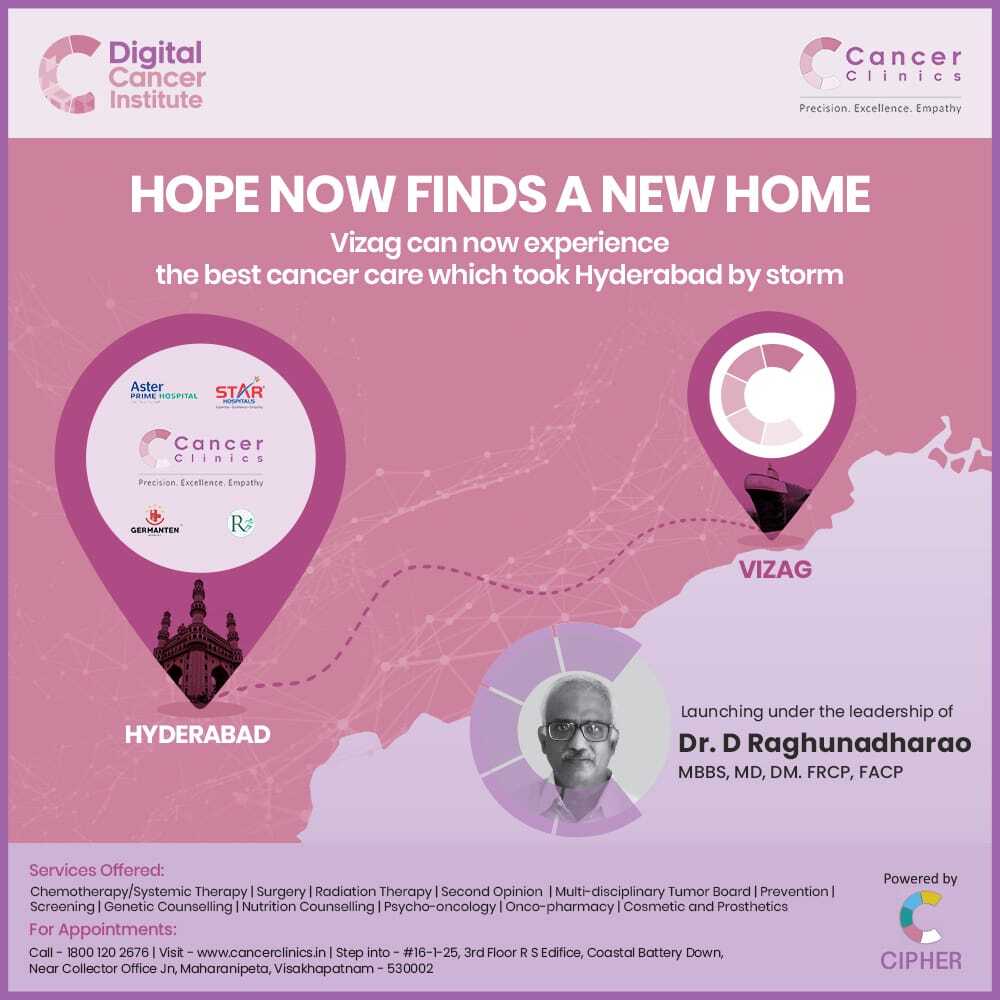Radiation oncology is a medical speciality that involves the controlled use of radiation to treat cancer. Seven out of ten patients show indications for radiation therapy before or after surgery or chemotherapy or as a palliation. Radiation therapy is often used in conjunction with chemotherapy or surgery.
Radiation therapy kills or damages cancer cells by using high doses of radiation to damage the DNA (genetic material) of these cells. Radiation therapy either damages DNA directly or creates charged particles within the cells that can in turn damage the DNA. When the DNA of these cells is damaged beyond repair, they stop dividing or die and are eliminated by the 's natural processes. Doctors that treat cancer with radiation are called radiation oncologists.
The decision to choose radiation therapy depends on several factors including type, size, and location of cancer, your general health, and age. It is used to meet any of the following goals:
- Cure cancer - when radiation destroys cancer cells to the point that cancer can no longer be detected in your
- Control cancer - when radiation keeps cancer from spreading or slows its
- Ease symptoms - when radiation shrinks tumours that are causing pain or pressure or bleeding
Radiation is used in some non-malignant or benign conditions. Sometimes radiation is also employed to reduce the size of the tumour before it is fully removed in surgery.
There are two methods of administering radiation:
1. External Beam Radiation - A machine outside your (similar to a CT scan or MRI machine) aims radiation at cancer cells. This method is also called as Teletherapy.
2. Internal Radiation - Source of radiation is placed close to the tumour i.e., inside your body and then radiation is delivered as planned by radiation oncologist. This method is otherwise called as Brachytherapy.
The choice of how to administer radiation is made based on the organ that the tumour is in.
At Cancer Clinics, we include radiation therapy in our end-to-end treatment plans and get our patients treated by the best names in radiation oncology using state-of-the-art technology. Our multi-disciplinary tumour board works together to devise the radiation therapy plan including the appropriate dosage and duration of treatment. We decide this based on the individual patient and their personalised treatment plan.
Our focus on integrative care helps patients manage side effects of radiation therapy with coaching, counselling, and advice on nutrition.
